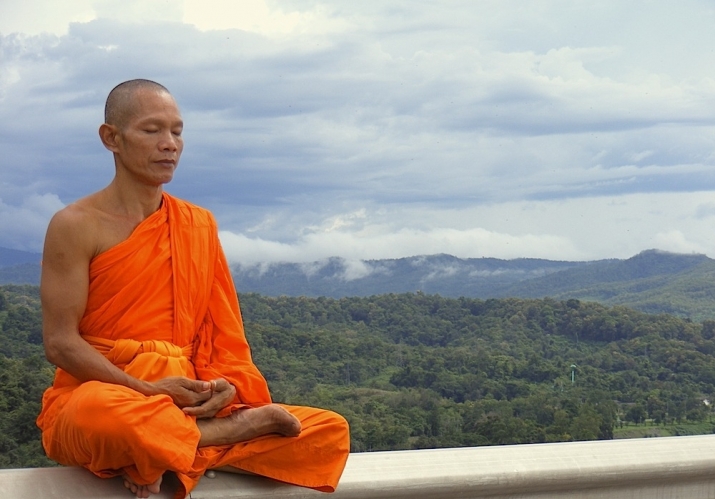NEWS
Study Shows Loving-kindness Meditation Reduces Racial Bias
 From wikipedia.org
From wikipedia.orgNew research conducted at Britain’s University of Sussex has shown that a single session of just seven minutes of loving-kindness meditation—the Buddhist practice of cultivating unconditional love and compassion for oneself and other sentient beings—is effective at reducing racial prejudice in the practitioner.
“Loving-kindness meditation” (metta bhavana in Pali) is a traditional Buddhist meditation practice recommended to the followers of the historical Buddha, Shakyamuni, in the Pali Canon, and entails radiating metta to all sentient beings in the six directions.* A variation on the practice outlined in the 5th century Theravada Buddhist text Visuddhimagga (The path of purification) and still widely used today also advocates a six-stage approach to cultivating benevolence.**
“We wanted to see whether doing [loving-kindness meditation] towards a member of another ethnic group would reduce the automatic preference people tend to show for their own ethnic group,” said Alexander Stell, a doctoral student in psychology at the University of Sussex and lead researcher on the study. (University of Sussex)
The study took a sample of 71 white, non-meditating adults. Each of the participants was shown a photograph of a gender-matched black person and either received pre-recorded loving-kindness meditation instruction or was told to look at the image and take note of certain facial features. Both sets of test conditions lasted seven minutes.
The researchers then “scored” the group as they matched a series of positive and negative ideas, such as “happiness” or “wrong,” with pictures of faces that belonged to either their own or another ethnic group—a measure of reactions known in social psychology as the Implicit-Association Test. Previous studies have shown that people are generally much quicker to match positive associations with their own ethnic group and negative associations with other ethnic groups. Many researchers believe the method provides a more robust measure of prejudice than traditional questionnaire data, which are known to be strongly influenced by social desirability.
The University of Sussex study found that just seven minutes of loving-kindness meditation directed towards a member of a specific racial group (in this case, a black person) measurably reduced racial bias towards that group in the test subject, although there was no marked reduction in bias towards other racial groups. The researchers also measured levels of positive emotions that were “other-regarding,” such as love, gratitude, awe, and elevation, with those that were more “self-directed,” such as contentment, joy, and pride. Loving-kindness meditation was shown to provide a significant increase in other-regarding emotions, driving the reduction of bias.
“This indicates that some meditation techniques are about much more than feeling good, and might be an important tool for enhancing inter-group harmony,” said Stell. (University of Sussex)
Separate studies have ascribed a broad range of other long-term benefits to the practice of metta bhavana, including increased positive emotions, improved psychological well-being, alleviation of migraines and chronic pain, as an effective treatment for post-traumatic stress disorder and schizophrenia-spectrum disorders, and improved empathy and emotional intelligence.
* The six directions in the Pali Canon:
1. North: friends
2. East: parents and children
3. South: teachers and students
4. West: spouse
5. Nadir: workers and servants
6. Zenith: ascetics, Brahmins, and lay followers
** The six stages of metta bhavana described in the Visuddhimagga:
1. Oneself
2. A good friend
3. A “neutral” person
4. A “difficult” person
5. All four of the above equally
6. The entire universe
See more
Seven minutes of meditation can reduce racial prejudice, study finds (University of Sussex)
18 Science-Based Reasons to Try Loving-Kindness Meditation (Mindful)
How to Practice Loving Kindness Meditation (Metta) (WikiHow)
Metta Bhavana: Loving Kindness Meditation, Ven. Dhammarakkhita (BuddhaNet)














